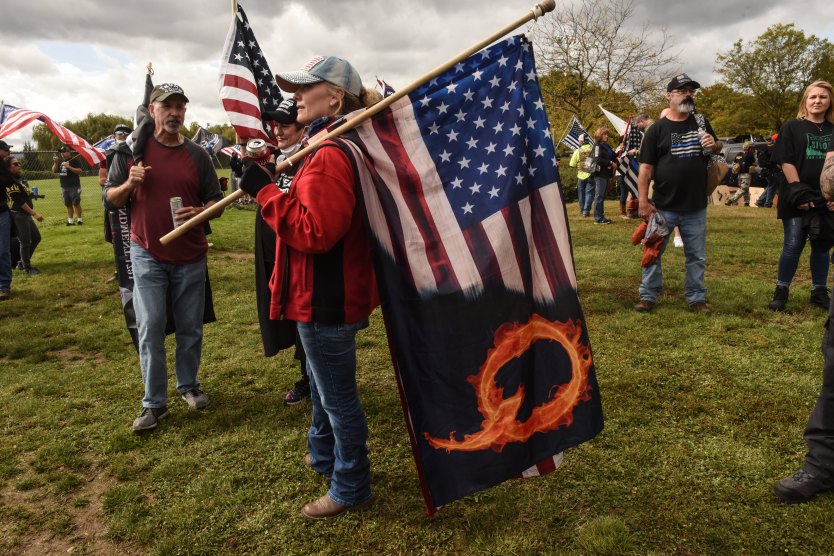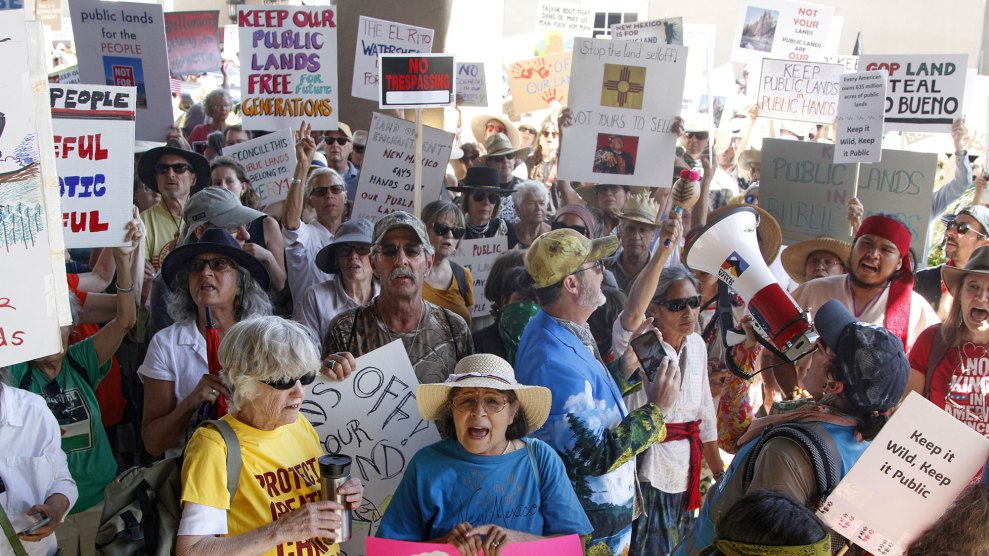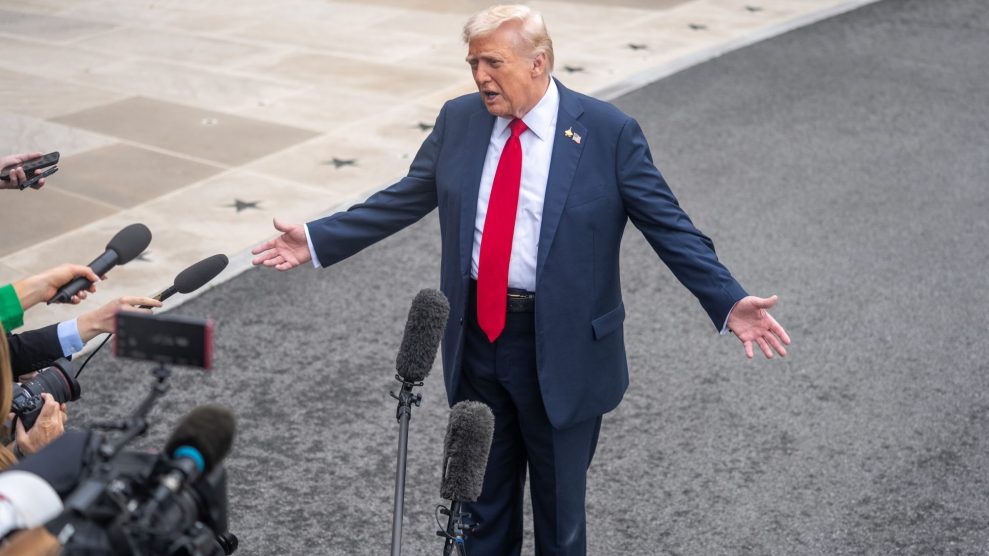
Stephanie Keith/ZUMA Wire
Ferguson similarly said as much in an emailed statement: “Congressman Ferguson is not a supporter of QAnon. He in no way intended to lend credibility to conspiracy theorists or their outlandish ideas. He does, however, support the First Amendment and its protection of free speech.” It’s unclear how a non-binding resolution that encourages other agencies to act within their own jurisdictions would supersede or threaten a Constitutional amendment. The lawmakers who voted on First Amendment grounds did not offer further explanation. It’s worth noting that one of the congressmen who voted in favor of the resolution, Rep. Buddy Carter (R-Ga.), later backtracked his vote. On Twitter, he wrote that he “unintentionally voted” against the resolution. “In the interest of transparency, my intended vote was ‘aye’ and that will be reflected in the record,” he said. In a statement to Mother Jones, Carter clarified what happened: “I have made my position on QAnon very clear. This was an honest mistake and an unintentional vote on a non-binding resolution while I was distracted advocating for additional relief for small businesses and working families. I have already submitted a clarification, and my intended ‘aye’ vote will be reflected in the record.” It’s not the first time Carter has “unintentionally” aligned himself with QAnon. In early August, Carter attended a “Save the Children” rally and march in Savannah that was organized by QAnon supporters. When he was criticized for attending the rally, Carter claimed that he didn’t know it was organized by supporters of the group and attended to show solidarity against human trafficking. “Congressman Carter was invited by a constituent who shares his strong stance against human trafficking, especially the trafficking of children,” a spokesperson for Carter told the Atlanta Journal-Constitution at the time. “Rep. Carter had no knowledge of any QAnon ties to the event, his attendance had absolutely nothing to do with QAnon, and Rep. Carter is in no way affiliated with QAnon.” Here’s a full list of who voted against the resolution:The resolution threatens protected speech (absurd as that speech may be), and its prescriptions for addressing QAnon aren’t appropriate for what we know about them & may make things worse. These are conspiracy theorists who believe in a deep state that’s fighting against them,… https://t.co/POPukpQ5YM
— Justin Amash (@justinamash) October 2, 2020
- Justin Amash (I-Mich.)
- Jodey Arrington (R-Texas)
- Brian Babin (R-Texas)
- Mo Brooks (R-Ala.)
- Rob Bishop (R-Utah)
- Michael Burgess (R-Texas)
- Buddy Carter (R-Ga.) (though, per above, he’s changing his vote)
- Warren Davidson (R-Ohio)
- Jeff Duncan (R-SC)
- Drew Ferguson (R-Ga.)
- Bill Flores (R-Texas)
- Paul Gosar (R-Ariz.)
- Mike Kelly (R-Pa.)
- Steve King (R-Iowa)
- Ralph Norman (R-SC)
- Scott Perry (R-Pa.)
- Tom Tiffany (R-Wisc.)
- Daniel Webster (R-Fla.)


















